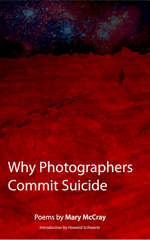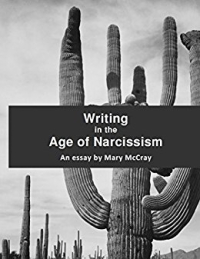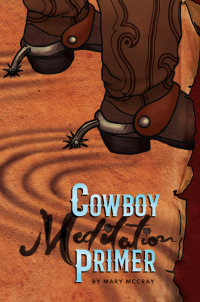 E Poetry & Fiction
E Poetry & Fiction
I’ve continued with explorations of digital poetry as I'm still interested in how readers process narratives, multi-sensory experiences and the playful and participatory. I'm also getting my mind blown by the frame busting.
I’ve just started to read the textbook, New Media Poetics: Contexts, Technotexts, and Theories, edited by Adalaide Morris. It's just as nerdy as you would expect but I'm really lovin it.
I also recently tried to introduce a digital novel into my Difficult Book Club (more on that below). Before I mistakenly chose the books we read, I tried to contact a few members of the Electronic Literature Org to find out what they might recommend for introducing to book-bound club to electronic literature. But I consistently received no response so we picked a PDF novel with a image archive and the group choked on it. They hated it. Granted the execution of the narrative wasn’t very good, but they weren’t even interested in the concept of it or the opportunities for escaping the limitations of their chosen media.
Since then, I’ve received a copy of the digital novel Wallpaper (now touring in art installations in Europe) but I haven’t been able to run it yet, finding too many technical limitations from one computer to another. You can see some online “short stories” from the story's creator at Dreaming Methods. Click 'Portfolio' in the top menu.
Monsieur Big Bang and I are also going to tackle House of Leaves shortly after we finish the Gormanghast novels. I know this sounds more like The Masochist’s Book Club than just The Difficult Book Club but you can peruse our evolving reading list.
I’ve also been reading more about poet Stephanie Strickland. Here is a good example of her work: “Sea and Spar Between”
The poem is based on Emily Dickinson poem “each second is the last” below:
Each Second is the last
Perhaps, recalls the Man
Just measuring unconsciousness
The Sea and Spar between.
To fail within a Chance –
How terribler a thing
Than perish from the Chance’s list
Before the Perishing!
Unlike Emily Dickinson poems, this one is 225 trillion stanzas long (yeah, you heard that right), impossible to read fully which is part of the point. It’s still fun to “skim across the surface” of it and experience the responsiveness of your computer mouse as the poem’s stanzas flutter away. You can use your A and Z keys to zoom in and out.
Here is Strickland’s essay from the Poetry Foundation website, “Born Digital,” where she lists 11 ways to identify and conceptualize digital poetry.
I’ve also come across The Iowa Review Web that seems worth exploring, an online journal of digital pieces from 2000-2008. Browse the archive: http://thestudio.uiowa.edu/tirw/vol9n2/judymalloy.php
More Difficult Books
These three recent reads also classify as difficult if you're feeling adventurous.
 A Poetical Dictionary by Loren Green (Amazon)
A Poetical Dictionary by Loren Green (Amazon)
When I first started to read this, I gave up. I wasn’t in the mood to read something that slowly. It’s all timing with these difficult books. A year or two later, I started again. This is a short book and well worth the effort of going slow with but its only 42 words long. Fascinating if you’re in any way into etymology (or the study of words). Word nerds, dictionary nerds.
Don’t skip the preface, it’s full of prose poetry. Beautifully printed, pronunciation tips that are pure poetry, historical word history followed by lyrical explorations of the chosen words. A sprinkling of dictionary abbreviations I had to look up…I’m no dictionary snob. So observant. We should all do this exercise with our favorite words.
Don’t miss the charts at the end! Never have I found charts so moving.
 Graphs, Maps, Trees: Abstract Models for a Literary History by Franco Moretti (Amazon)
Graphs, Maps, Trees: Abstract Models for a Literary History by Franco Moretti (Amazon)
I read this book and then lost it in my book-stuffed house (which makes me a hoarder). Google Books explains this book well,
"The 'great iconoclast of literary criticism' ("Guardian") reinvents the study of the novel. Franco Moretti argues heretically that literature scholars should stop reading books and start counting, graphing, and mapping them instead. …For any given period, scholars focus on a select group of a mere few hundred texts: the canon. As a result, they have allowed a narrow distorting slice of history to pass for the total picture. Moretti offers bar charts, maps, and time lines instead, developing the idea of "distant reading" into a full-blown experiment in literary historiography, where the canon disappears into the larger literary system. Charting entire genres – the epistolary, the gothic, and the historical novel, he shows how literary history looks significantly different from what is commonly supposed…”
Not everybody's chosen literary vantage point but it is well-suited for a data-obsessed culture. And there are some surprising trends you can see when you look at data from outside the matrix (and contemporary lit criticism is nothing if not a matrix). This book is not for the faint of heart. It’s a data set story and my eyes glazed over more than once. That said, it’s a revolutionary look at how the novel has evolved…using real data. A new story emerges.
Some examples. Click to enlarge.
 Metaphors We Live By by George Lakoff and Mark Johnson 1980 (Amazon)
Metaphors We Live By by George Lakoff and Mark Johnson 1980 (Amazon)
A common theme in the American Women Poets in the 21st Century: Where Lyric Meets Language (2013) with a few of the language poets represented were comments around the failures of metaphor in language and the capricious pursuit of newly minted metaphor.
Lakoff and Johnson’s book is lots of theory but the book dissects how metaphor is absolutely ingrained not only in our language but in the very way we conceive of abstract ideas, even simple ones. The authors categorize orientation metaphors (happy is up, sad is down), motion metaphors, war metaphors.
Metaphor construction is a “fundamental mechanism of the mind” and one that language poets like to toy with. Could we communicate without them?
Yesterday I even came across the 2012 Lexicon Valley podcast on the same topic, episode #23, "Good Is Up." One listener to the show commented that "much of language is fossilized metaphor.” A very metaphorical response. The podcast covers Lakoff and Johnson book and also interviews James Geary who has probably a much easier read on the topic, I Is an Other: The Secret Life of Metaphor and How It Shapes the Way We See the World. (How the paperback is more expensive than the kindle version, we'll never understand.) But Geary says every 1-25 words. The differentiate between literary metaphors, intentional metaphors and unintentional so ancient and subconscious metaphors. During the podcast, the hosts quote from three poets. In trying to describe metaphors of time, Bob Garfield, (who you may recognize as the host of NPR's national show "All Things Considered") found this quote from Ralph Hodgson poem "Time, You Old Gipsy Man"
Time, You Old Gypsy Man
Will you not stay,
Put up your caravan
Just for one day?
Mike Vuolo found this quote:"Ticking away the moments that make up a dull day" from Pink Floyd’s lyrics to “Time” to which Bob replied, “Okay you win; I am a nerd loser.”
The culture positioning between songwriters and poets is constantly happening.
Later Mike Vuolo quoted Virgil: "But meanwhile it flees: time flees irretrievably, while we wander around, prisoners of our love of detail," (I could not find a good source for that translation). to explain the metaphors of time as movement, where time moves forward (for humans who walk forward) and from left to right on line graphs, which takes us back to Graphs Maps and Trees!


















